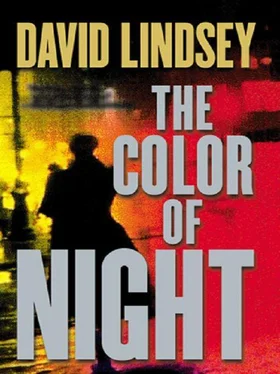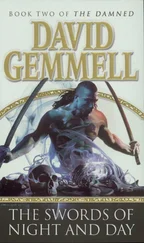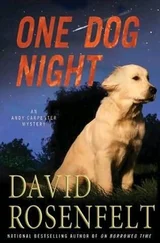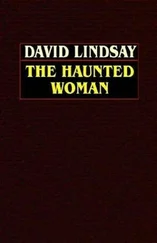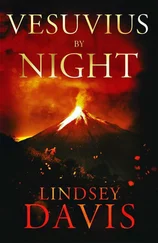David Lindsey - The Color of Night
Здесь есть возможность читать онлайн «David Lindsey - The Color of Night» весь текст электронной книги совершенно бесплатно (целиком полную версию без сокращений). В некоторых случаях можно слушать аудио, скачать через торрент в формате fb2 и присутствует краткое содержание. Жанр: Полицейский детектив, на английском языке. Описание произведения, (предисловие) а так же отзывы посетителей доступны на портале библиотеки ЛибКат.
- Название:The Color of Night
- Автор:
- Жанр:
- Год:неизвестен
- ISBN:нет данных
- Рейтинг книги:4 / 5. Голосов: 1
-
Избранное:Добавить в избранное
- Отзывы:
-
Ваша оценка:
- 80
- 1
- 2
- 3
- 4
- 5
The Color of Night: краткое содержание, описание и аннотация
Предлагаем к чтению аннотацию, описание, краткое содержание или предисловие (зависит от того, что написал сам автор книги «The Color of Night»). Если вы не нашли необходимую информацию о книге — напишите в комментариях, мы постараемся отыскать её.
The Color of Night — читать онлайн бесплатно полную книгу (весь текст) целиком
Ниже представлен текст книги, разбитый по страницам. Система сохранения места последней прочитанной страницы, позволяет с удобством читать онлайн бесплатно книгу «The Color of Night», без необходимости каждый раз заново искать на чём Вы остановились. Поставьте закладку, и сможете в любой момент перейти на страницу, на которой закончили чтение.
Интервал:
Закладка:
He had never fired a gun in his life.
He dragged both men into the cabin, then managed to muddle about with the launch engine until he got the boat started again and followed the distant and diminishing wake of the vaporetto to the docks surrounding the airport. There he maneuvered the launch to an isolated branch of the public dock, pulled into a slip, cut the motor, and climbed out of the launch onto the dock, not even thinking to tie it.
He walked away in a daze.
For nearly three weeks he had a nightmare about it every night. More than a few times it drove sleep away altogether, and he lay awake in the dark, hearing imminent death in the creaking walls of old hotels or in the opening or closing of a distant door.
Then one night in a cramped monk’s cell at the Great Lavra monastery on Mount Athos, where he had fled to hide and gather his thoughts and nerves among ornate religious art and quiet men, he stared at the blue moonlight on the stone of the deep windowsill and realized Schrade’s demonic audacity: ursurping God’s role, he took it upon himself to grant life or death. If he turned his eyes this way, a man was made to die; with a subtle nod of his head, another was allowed to live. Allowed to live! The magisterial insolence of it hit Corsier like a thunderbolt.
At that moment a sudden and powerful resentment was ignited in Corsier’s heart, and even before he could swing his feet off the cot to sit up and look out of his window to the Aegean Sea, a fierce conviction to liberate himself from Schrade began to wrestle with his paralyzing fear and would soon overcome it.
The next day he began growing his mustache and goatee, and the day after that he departed the monastery.
He never wavered. For him there was no moral struggle. Wolfram Schrade wanted to kill him and sought to kill him. And Schrade’s life was a brutal witness to the man’s appalling turpitude. As far as Corsier was concerned, the sum of that simple equation was quite evident. He never looked back.
He checked into his rooms on the third floor of the Connaught Hotel late in the afternoon. The suite had three rooms: a reception area and two bedrooms, one on either side, each with its own bath. The reception had the largest windows and the best view of Knight’s second-floor library. Corsier chose the bedroom on the right.
He had bought a piece of ordinary luggage in which to transport the paintings so that he did not attract attention to himself. In another piece of luggage he brought in two pairs of powerful binoculars and two tripods, which he set up in the reception in front of the windows. He attached the binoculars to the tripods and looked across Carlos Place into the second floor of Knight’s library. No one was in the room, in which only a few lamps were lighted against the gray day. Good enough, though. He hoped he wouldn’t have to rely on Skerlic’s microphones alone to identify Schrade’s positioning. It was good, too, that the day would be overcast and rainy-he monitored the television weather forecasts religiously to make sure. The gloomy day would enable them to sit in their rooms with the lights out and the curtains open and not be observed from Knight’s library.
Putting the binoculars into the suitcase, he made a mental note always to lock them up before he left the suite. The maids would take note of binoculars on a tripod.
He sat on the smaller of the two sofas and stared out the windows. He would spend the night here. Tomarrow would be difficult because the only thing left to do was wait. He would install Skerlic here tomorrow night, in plenty of time for them to be ready for Schrade’s arrival the next morning.
After a final conversation with Skerlic about the order of things to come, he would deliver the drawings around eight o’clock. Knight had wanted them sooner, of course, but Corsier had presented him with creative excuses, abundant reasons. Now, at least, from his post across the street, he could see and hear whether Knight was tempted to cheat in the two hours he had between the time Corsier dropped off the drawings and Schrade’s arrival.
With only the swishing sound of the polite Mayfair traffic on the wet streets to interrupt the silence of his room, Corsier stroked his mustache and goatee and sighed heavily. It was a bittersweet time for him. Though he was about to rid himself of Meister Death, he was going to have to go into exile to do it. The ensuing investigation, by the British and German governments, would quickly identify him as the major suspect. Flight was his only alternative.
Much of the past month had been taken up with arranging his second disappearance, the passports, the shuffled bank accounts, the well-thought-out routes of escape, the detailed study of certain neighborhoods in places like Buenos Aires, Singapore, Bogota. He thought of his exile as a temporary placement. Perhaps after three years, or five, or seven, he could quietly return. Both governments would make a great flourish of looking for the assassin for a year or two, but in reality, once the media lost interest in the case, so would Scotland Yard and the Bundeskriminalamt. After all, these agencies were not ignorant. As long as the media was not urging them on, why would they go out of their way to pursue the killer of a man like Wolfram Schrade? After a time other urgent criminal matters would demand their attention, and the “Schrade task force” would be reduced to a perfunctory little office with one or two officers assigned to plod through the mounds of paper that would have been generated by the initial inquiry.
That was the way he saw it, anyway. It was not the best of situations in which to find oneself, but he would rather flee the searches of two governments, whose budgetary patience for wild goose chases was limited, than try to hide from an obsessed Schrade’s well-financed assassins.
God, but he would miss London and Geneva and Paris and Rome. He loved all these wonderful cities in all the wonderful seasons of their years. To have to say good-bye to their galleries and museums and symphony halls and operas grieved him far more than he ever would have imagined. How long might it be before he would again be able to dine at the quiet little Vecchia Roma in Piazza Campitelli or at the sublime La Tour d’Argent on Quai de la Tournelle or have a late morning coffee melange with his newspaper at the Cafe Central in Vienna?
The answer was, eventually. As opposed to never, if Schrade was left unchecked. Corsier was French enough to be capable of sentimentality, but he was also a native Genevan and had a strong sense of practicality. It would be Wolf Schrade’s great misfortune that Claude Corsier had been a lucky man that day in Venice.
CHAPTER 53
The next morning they walked to Shepherd Market huddled together under an umbrella and ate breakfast at da Corradi, where the bacon and eggs were done to Strand’s liking. Afterward they both ordered cappuccinos before going back out into the rain.
“About Carrington,” he said, leaning toward Mara slightly on his forearms. “There’s a timing concern.”
She didn’t look at him. She concentrated on her coffee.
“You’ll need to retrieve the drawings. We don’t want them left there. It doesn’t take much imagination to know that there’s going to be a hell of an investigation. We need a smokescreen, something to create confusion, obscure the inquiry. I’m going to use my Geneva files.”
Mara looked up. “Harry…”
“I can do it without making the source an obvious intelligence leak. It can be done. When that stuff gets out, the potential suspects for the killing will be so enormous it’ll swamp the investigation. It’ll get murky with spies and criminal organizations. There’ll be a frenzy of denials and finger-pointing. They’ll never sort it out. It’ll go unsolved.”
Читать дальшеИнтервал:
Закладка:
Похожие книги на «The Color of Night»
Представляем Вашему вниманию похожие книги на «The Color of Night» списком для выбора. Мы отобрали схожую по названию и смыслу литературу в надежде предоставить читателям больше вариантов отыскать новые, интересные, ещё непрочитанные произведения.
Обсуждение, отзывы о книге «The Color of Night» и просто собственные мнения читателей. Оставьте ваши комментарии, напишите, что Вы думаете о произведении, его смысле или главных героях. Укажите что конкретно понравилось, а что нет, и почему Вы так считаете.
